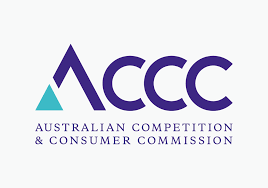Equipping professional accountants for sustainability
The International Federation of Accountants has developed a concise resource to guide accounting professionals and...
READ MORE
Facebook, Instagram, and Google among other digital platforms have been put on notice by the Australian Competition and Consumer Commission following the release of its inquiry into digital platform services.

The inquiry has made four major recommendations including a crackdown on unfair trading practices and unfair contract terms.
This is the fifth release from the ACC since it began an inquiry in 2017 and it has this time called for industry-specific legislation after identifying “widespread, entrenched and systematic” consumer and competition “harms”.
It also wanted digital platforms to be required to provide user-friendly processes for alerting to scams, noting losses reported to Scamwatch from schemes on social networking and mobile apps almost doubled to $92 million in 2021.
The ACCC has proposed that platforms be subject to mandatory dispute resolution processes and stronger requirements for combating scams, harmful apps, and fake reviews, among other measures.
Additionally, it has also proposed mandatory codes of conduct for certain platforms and services to protect and promote competition.
“We know that the expansion of digital platforms in Australia has brought many benefits to Australian consumers and businesses,” ACCC Chair Gina Cass-Gottlieb said.
“This expansion of digital platform services has also created risks and harms that our current consumer and competition laws are not always able to address.
“Our analysis has identified concerning consumer and competition harms across a range of digital platform services that are widespread, entrenched, and systemic.
“The critical positions that digital platforms hold, as ‘gatekeepers’ or ‘intermediaries’ between businesses and consumers, mean they have a broad influence across the economy, making the reforms we are recommending crucial and necessary for all Australians.”
In addition to consumer and competition-specific recommendations for digital platforms, the report also reiterated the ACCC’s support for a new economy-wide unfair trading practices prohibition.
The ACCC and other agencies have observed a significant and sustained increase in scams on digital platforms targeting consumers, including those experiencing vulnerability.
In addition, consumers have experienced harms from inappropriate and fraudulent apps made available on app stores as well as from fake reviews and review manipulation.
“Digital platforms that host or otherwise act as intermediaries between scammers and their victims are in a unique position to identify and stop scams and remove harmful apps,” Ms Cass-Gottlieb said.
“Losses reported to Scamwatch from scams conducted via social networking and mobile apps almost doubled in the last year between 2020 and 2021, with $49 million recorded in 2020 compared with $92 million in 2021. This shows that digital platforms need to do more to stop their users from being scammed.
“We also need more action on fake reviews from platforms whose services feature ratings and reviews, including those appearing on search, social media, app stores and online marketplaces.”
The ACCC’s report recommended new laws that require digital platforms to:
The ACCC recommended a new regulatory regime to work alongside Australia’s existing competition laws that would address anti-competitive conduct, unfair treatment of business users, and barriers to entry and expansion by potential rivals.
Service-specific codes of conduct could include targeted obligations to:
The government is considering the ACCC’s recommendations and will consult publicly to seek the views of stakeholders as part of its efforts to ensure Australia has the right regulations in place to be a leading digital economy.